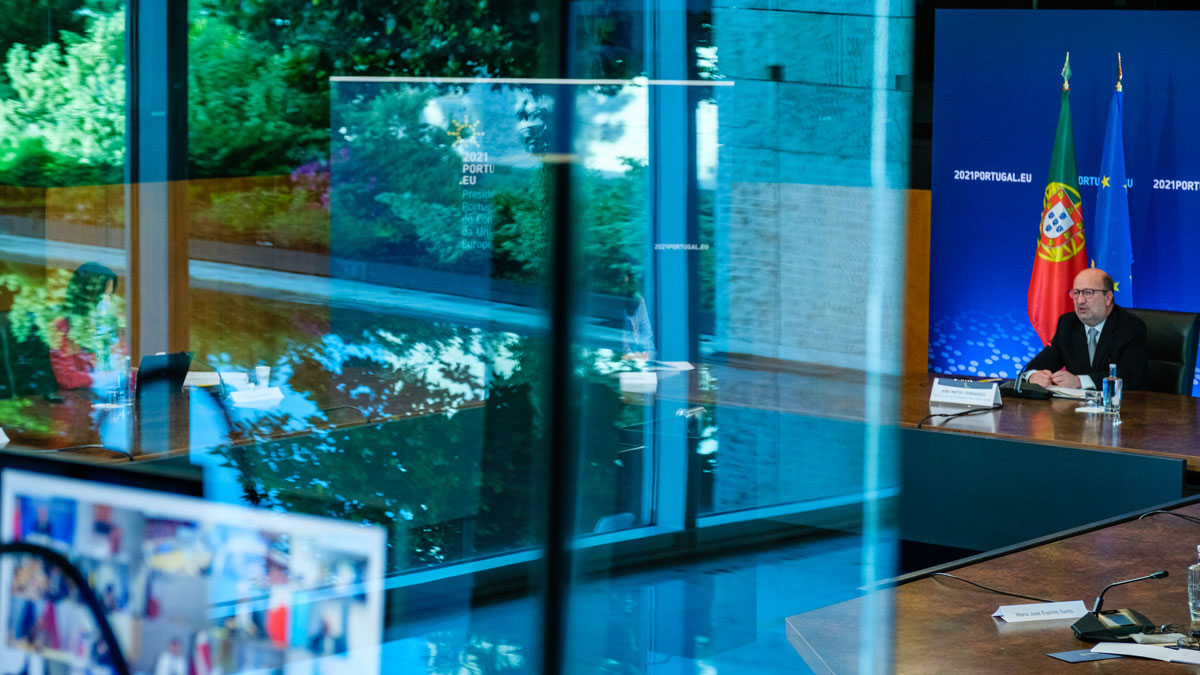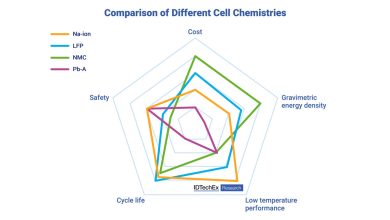EU Energy Ministers Meet to Discuss Major Energy Topics
On April 22, under the auspices of the Portuguese Presidency of the Council of the European Union, EU Energy Ministers held an informal video conference to discuss major energy topics.
The meeting was chaired by the Portuguese Minister for Environment and Climate Action, João Pedro Matos Fernandes.
One of the topics addressed at the meeting was the application of European funds to energy efficiency, in particular the “Renovation Wave Initiative”, whose aim is to promote the rehabilitation of buildings in Europe. The Ministers also discussed the integration strategy for the energy system, in particular the role of decentralized energy production and the creation of renewable energy communities.
Energy Ministers exchanged views on the development of renewable energy communities, as well as self-consumption of renewable electricity, establishing the concepts of self-consumers of renewable energy, either individually or jointly, given the provisions of Directive (EU) 2018/2001 on the promotion of the use of energy from renewable sources. Regarding the building renovation wave in Europe, the discussions focused on prioritizing actions in three areas, namely: renovation of public buildings and social infrastructure; addressing the basic energy needs and buildings with the poorest performance and decarbonizing buildings throughout their lifecycle.
“We emphasize the importance of investments in energy renovation of buildings, these being a necessity from a climate point of view and a clear priority in terms of investments for an ecological and just recovery. At national level, final energy consumption in the construction sector accounts for 42% of total final energy consumption, of which 34% are residential buildings and the rest (approximately 8%) commercial and public buildings. The residential sector has the greatest share in energy consumption (approximately 81%), while all the other buildings taken together (offices, schools, hospitals, commercial spaces, and other non-residential buildings) account for the rest of 19% in total final energy consumption.
Through the Recovery and Resilience Facility, we will address, within the National Recovery and Resilience Plan, the issue of renovation of public and private buildings, of moderate level, for which the minimum reduction in energy consumption and CO2 emissions will be 30%, as well as deep renovations for which the minimum reduction in energy consumption and CO2 emissions will be 60%, which will accelerate the pace of reaching energy efficiency targets established in the strategic European and national documents by doubling the annual renovation rate, in relation to the current pace, reaching the maximum potential of extended benefits at the level of the built environment and society.
According to the national long-term renovation strategy, by 2030, an amount of approximately EUR 13 billion will be invested in the renovation of public and private buildings, residential and non-residential, to fulfil the European commitments on renovation rate, reduction of energy consumption and greenhouse gas emissions. This is a major challenge, as it involves not only sources of funding, but also labour force for the construction sector,” Virgil Popescu, Romania’s Energy Minister, stated.
Regarding the integration of energy systems, Virgil Popescu mentioned that it is necessary to assess the potential of energy communities in the reduction of energy poverty, including the opportunities and barriers for the participation of socially vulnerable households and of those in energy poverty in energy communities.
“We believe that innovative financing schemes are necessary to overcome the barriers in the way of investments, as renewable energy projects usually require high capital costs and one of the main challenges for energy communities is how to ensure financing in advance,” the Energy Minister also mentioned.



